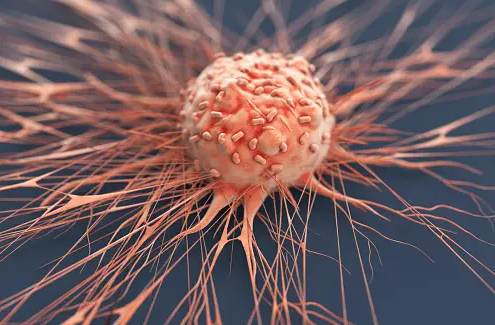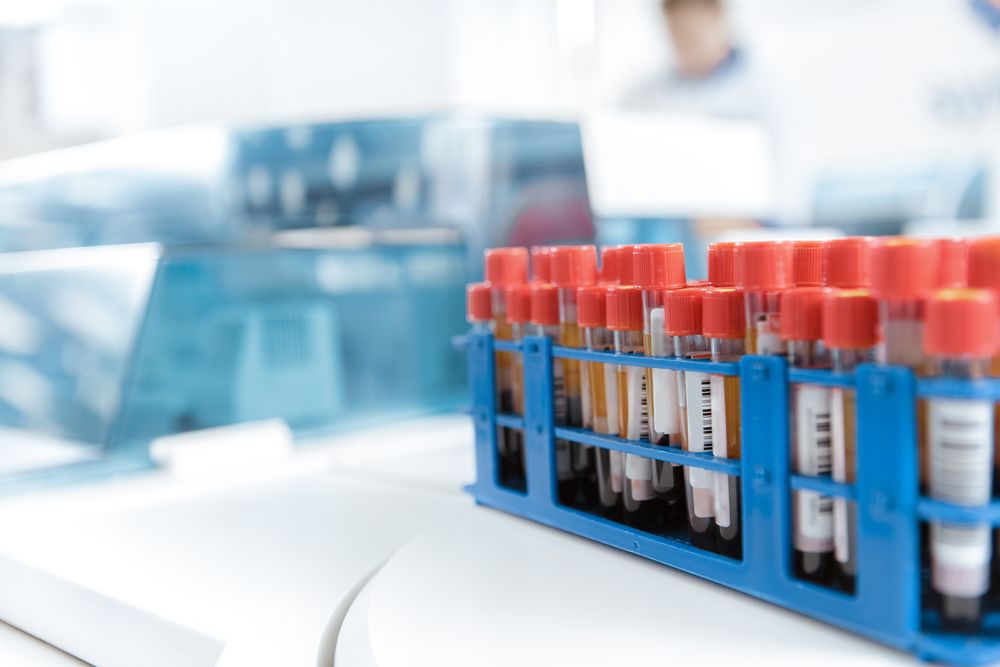Cancer - Symptoms, Causes, Diagnosis and Treatments

What is Cancer?
Cancer is a disease that originates from abnormal cell growth and division. When these cells multiply uncontrollably, they can form tumors and invade nearby tissues. Some tumors are considered benign, meaning they do not spread to other parts of the body. On the other hand, malignant tumors are cancerous and can metastasize, spreading to distant organs or tissues.
The most common types of cancer in Australia include prostate cancer, breast cancer, bowel cancer, endometrial cancer, melanoma, lung cancer, skin cancers, head and neck cancers, uterine cancer, lymphoma, leukemia, cervical cancer, ovarian cancer, and thyroid cancer.
Common Types of Cancer
Cancer can affect various organs and systems in the body. Let's take a closer look at some of the most prevalent types of cancer:
- Prostate Cancer: Affects the prostate gland in men.
- Breast Cancer: Primarily affects the breast tissue in women, but can also occur in men.
- Bowel Cancer: Develops in the colon.
- Endometrial Cancer: Arises in the lining of the uterus.
- Melanoma: Originates in the skin cells and can spread rapidly.
- Lung Cancer: Damages the lungs and is often associated with smoking.
- Skin Cancers: Includes basal cell carcinoma, squamous cell carcinoma, and melanoma.
- Head and Neck Cancers: Can occur in various areas, including the mouth, throat, and nasal cavity.
- Uterine Cancer: Develops in the uterus, also known as the womb.
- Lymphoma: Originates in the lymphatic system, which is part of the immune system.
- Leukemia: Affects the blood and bone marrow, leading to an abnormal production of white blood cells.
- Cervical Cancer: Occurs in the cervix, the lower part of the uterus.
- Ovarian Cancer: Arises in the ovaries, the female reproductive organs.
- Thyroid Cancer: Develops in the thyroid gland, located in the neck.
Recognizing the Symptoms
Recognizing the symptoms of cancer is crucial for early detection and treatment. While experiencing these symptoms does not necessarily indicate cancer, it is essential to consult with a healthcare professional for further investigation.
Some common symptoms of cancer include:
- Lumpiness or thickening of the breast tissue
- Changes in breast shape or nipple appearance
- Unusual nipple discharge
- Nipple inversion
- Persistent diarrhea or constipation
- Abdominal or rectal pain
- Persistent bloating
It is important to note that these symptoms can also be indicative of other medical conditions, so consulting a healthcare professional is essential for an accurate diagnosis.
Understanding the Causes
While the exact causes of cancer are often unknown, certain factors can increase the risk of developing the disease. Some common causes and risk factors include:
- Smoking: Tobacco use is responsible for a significant number of cancer cases and deaths worldwide.
- Alcohol Consumption: Heavy and prolonged alcohol consumption has been linked to an increased risk of developing certain types of cancer, such as liver, mouth, and breast cancer.
- Diet and Lifestyle: Poor dietary choices, including a high intake of processed foods, red meat, and sugary beverages, can contribute to cancer development. Additionally, a sedentary lifestyle and obesity have been associated with an increased risk of certain cancers.
- Genetics: Some individuals may inherit genetic mutations that predispose them to certain types of cancer.
- Environmental Factors: Exposure to radiation, asbestos, and specific chemicals can elevate the likelihood of developing cancer.
- Infections: Certain infections, such as human papillomavirus (HPV), hepatitis B and C, and human immunodeficiency virus (HIV), are associated with an increased risk of specific cancers.
It is important to note that while these factors can increase the risk of cancer, not everyone exposed to them will develop the disease. Additionally, some individuals without any known risk factors may develop cancer, highlighting the complexity of the disease.
The Diagnostic Process
Diagnosing cancer involves a comprehensive evaluation of the patient's medical history, physical examination, and various diagnostic tests. The diagnostic process may include the following steps:
- Medical History: The healthcare provider will inquire about your symptoms, medical history, and any relevant risk factors.
- Physical Examination: A thorough physical examination may be conducted to assess any visible abnormalities or signs of cancer.
- Diagnostic Imaging: Imaging tests such as X-rays, CT scans, MRI scans, or ultrasounds may be performed to visualize internal structures and identify any abnormalities or tumors.
- Laboratory Tests: Blood tests and other laboratory analyses can provide valuable information about the presence of cancer markers or abnormalities in the blood.
- Biopsy: If a suspicious mass or tumor is identified, a biopsy may be performed to obtain a sample of tissue for further examination in a laboratory. This helps determine the type of cancer and its stage.
The diagnostic process may vary depending on the type and location of the suspected cancer. It is essential to work closely with your healthcare provider throughout the diagnostic journey.
Exploring Treatment Options
Diagnosing cancer involves a comprehensive evaluation of the patient's medical history, physical examination, and various diagnostic tests. The diagnostic process may include the following steps:
- Surgery: Surgical procedures aim to remove cancerous tumors or affected tissues.
- Chemotherapy: The use of powerful medications to kill cancer cells or prevent their growth.
- Radiation Therapy: The controlled use of high-energy radiation to target and destroy cancer cells.
- Immunotherapy: Treatment that utilizes the body's immune system to fight cancer cells.
- Targeted Therapy: Medications that specifically target cancer cells without harming healthy cells.
- Hormone Therapy: Treatment that uses hormones to inhibit the growth of hormone-sensitive cancers.
- Stem Cell Transplantation: A procedure to replace damaged or destroyed bone marrow with healthy stem cells.
- Palliative Care: Focuses on improving the quality of life for individuals with advanced cancer, managing pain and other symptoms.
- Complementary Therapies: Approaches such as massage, acupuncture, and relaxation techniques that can provide supportive care alongside conventional treatment.
The choice of treatment depends on the specific circumstances of each patient. It is important to discuss the potential benefits, risks, and side effects of each treatment option with your healthcare provider.
Prevention and Risk Reduction
While not all cancers can be prevented, certain lifestyle choices can significantly reduce the risk of developing the disease. Here are some preventive measures to consider:
- Quit Smoking: Tobacco use is a leading cause of cancer, and quitting smoking greatly reduces the risk.
- Limit Alcohol Consumption: Moderation or avoidance of alcohol helps reduce the risk of alcohol-related cancers.
- Healthy Diet: Emphasize a balanced diet rich in fruits, vegetables, whole grains, and lean proteins while minimizing processed foods, red meat, and sugary beverages.
- Physical Activity: Engage in regular exercise to maintain a healthy weight and reduce the risk of certain cancers.
- Sun Protection: Protect your skin from harmful UV radiation by wearing sunscreen, protective clothing, and avoiding excessive sun exposure.
- Regular Screenings: Participate in cancer screening programs such as mammograms, Pap smears, and bowel cancer screening tests as recommended for early detection.
It is important to consult with your healthcare provider to assess your individual risk factors and develop a personalized prevention plan.
Managing Treatment Complications
Cancer treatments can sometimes lead to various side effects and complications. These can include pain, fatigue, hair loss, fertility problems, anemia, constipation, and more. It is essential to communicate openly with your healthcare team about any side effects you experience. They can provide guidance, prescribe medications, or recommend supportive therapies to help manage these complications.
It is also crucial to adopt a healthy lifestyle, practice self-care, and seek emotional support during the treatment process. Organizations like the Cancer Council and Rare Cancers Australia offer specialized support services, information, and resources to help individuals manage treatment complications.
Conclusion:
Dealing with cancer is challenging, but progress in diagnosis and treatment brings hope. Getting timely medical care and understanding the disease are crucial. Alongside traditional treatments, embracing holistic wellness supports overall well-being. Astolabs offers innovative home cancer diagnostics for early detection and informed decision-making. With Astolabs and a focus on holistic wellness, individuals can face their cancer journey with courage and optimism.





